- Home
- Michael Connelly
Blood Work Page 2
Blood Work Read online
Page 2
“Can’t complain. Now that it’s over.”
“I’ll see you in a little while. I want to check the blood work and get the tissue over to the lab.”
“I want to talk to you about something.”
“You got it. See you in a bit.”
A few minutes later two nurses wheeled McCaleb’s bed out of the cath lab and into an elevator. He hated being treated as an invalid. He could have walked but it was against the rules. After a heart biopsy the patient must be kept horizontal. Hospitals always have rules. Cedars-Sinai seemed to have more than most.
He was taken down to the cardiology unit on the sixth floor. While being wheeled down the east hallway, he passed the rooms of the lucky and the waiting-patients who had received new hearts or were still waiting. They passed one room where McCaleb glanced through the open door and saw a young boy on the bed, his body tied by tubes to a heart-lung machine. A man in a suit sat in the chair on the other side of the bed, his eyes staring at the boy but seeing something else. McCaleb looked away. He knew the score. The kid was running out of time. The machine would only hold him up for so long. Then the man in the suit-the father, McCaleb assumed-would be staring at a casket with the same look.
They were at his room now. He was moved from the gurney onto the bed and left alone. He settled in for the wait. He knew from experience that it could be as long as six hours before Fox showed up, depending on how quickly the blood work was run through the lab and how soon she came by to pick up the report.
He had come prepared. The old leather bag in which he had once carried his computer and the countless case files he had worked on was now stuffed with back issues of magazines he saved for biopsy days.
Two and a half hours later, Bonnie Fox came through the door. McCaleb put down the copy of Boat Restoration he had been reading.
“Wow, that was fast.”
“It’s slow in the lab. How are you feeling?”
“My neck feels like it had somebody’s foot on it for a couple hours. You’ve already been to the lab?”
“Yup.”
“How’d everything come out?”
“It all looks good. No rejection, all the levels look good. I’m very pleased. We might lower your prednisone in another week.”
She spoke as she spread the lab report out on the bed’s food table and double-checked the good results. She was referring to the carefully orchestrated mix of drugs that McCaleb took every morning and night. Last he’d counted, he was swallowing eighteen pills in the morning and another sixteen at night. The medicine cabinet on the boat wasn’t big enough for all the containers. He had to use one of the storage compartments in the forward berth.
“Good,” he said. “I’m tired of shaving three times a day.”
Fox folded the report closed and picked the clipboard up off the bed table. Her eyes quickly scanned the checklist of questions he had to answer every time he came in.
“No fever at all?”
“No, I’m clean.”
“And no diarrhea.”
“Nope.”
He knew from her constant drilling and double-checking that fever and diarrhea were the twin harbingers of organ rejection. He took his temperature a minimum of twice a day, along with readings of blood pressure and pulse.
“The vitals look good. Why don’t you lean forward?”
She put the clipboard down. With a stethoscope she first warmed with her breath, she listened to his heart at three different spots on his back. Then he lay back and she listened through his chest. She took her own measure of his pulse with two fingers on his neck while she looked at her watch. She was very close to him as she did this. She wore a perfume of orange blossoms, which McCaleb had always associated with older women. And Bonnie Fox was not one of them. He looked up at her, studying her face while she studied her watch.
“Do you ever wonder if we should be doing this?” he asked.
“Don’t talk.”
Eventually, she moved her fingers to his wrist and measured the pulse there. After that she pulled the pressure collar off the wall, put it on his arm and took a blood pressure reading, maintaining her silence all the time. “Good,” she said when she was done.
“Good,” he said.
“Whether we should be doing what?”
It was like her to suddenly continue an interrupted or forgotten bit of conversation. She rarely forgot anything McCaleb said to her. Bonnie Fox was a small woman about McCaleb’s age with short hair gone prematurely gray. Her white lab coat hung almost to her ankles because it had been designed for a taller person. Embroidered on the breast pocket was an outline of the cardiopulmonary system, her specialty as a surgeon. She was all business when it came to their meetings. She had an air of confidence and caring, a combination McCaleb had always found rare in physicians-and in the last years there had been many. He returned the confidence and caring. He liked her and trusted her. In his most secret thoughts there had once been a hesitation when he considered he would one day put his life in the hands of this woman. But the hesitation quickly left and caused him only a feeling of guilt. When the time came for the transplant, it had been her smiling face that was the last he had seen as he was put to sleep in pre-op. There had been no hesitation in him by then. And it was her smiling face that welcomed him back to the world with a new heart and new life.
McCaleb took the fact that in the eight weeks since the transplant there had not been a hitch in his recovery as proof his belief in her was valid. In the three years since he had first walked into her office, a bond had developed between them that had gone far beyond the professional. They were good friends now, or so McCaleb believed. They had shared meals a half dozen times and countless spirited debates on everything from genetic cloning to the O. J. Simpson trials-McCaleb had won a hundred bucks from her on the first verdict, easily seeing that her unwavering belief in the justice system had blinded her to racial realities of the case. She wouldn’t bet him on the second.
Whatever the subject, half the time McCaleb found himself taking the opposing opinion just because he liked battling with her. Fox now followed her question with a look that said she was ready for another joust.
“Whether we should be doing this ,” he said, waving a hand around as if to encompass the whole hospital. “Taking out organs, putting in new ones. Sometimes I feel like the modern Frankenstein, other people’s parts in me.”
“One other person, one other part. Let’s not be so dramatic.”
“But it’s the big part, isn’t it? You know, when I was with the bureau, we had to qualify on the range every year. You know, shoot at targets. And the best way to qualify was to go for the heart. The circle around the heart on those targets scores more than the head. It’s called the ten ring. Highest score.”
“Look, if this is the aren’t – we – acting – like – God debate again, I thought we were well past that.”
She shook her head, smiled and looked him over for a few seconds. The smile eventually dropped away.
“What’s really wrong?”
“I don’t know. I guess I’m feeling guilty.”
“What, about living?”
“I don’t know.”
“Don’t be ridiculous. We’ve been through this, too. I have no time for survivor’s guilt. Look at the choices here. It’s simple. You’ve got life on one side and then you’ve got death. Big decision. What is there to be guilty about?”
He raised his hands in surrender. She always put things in their clearest context.
“Typical,” she said, refusing to let him back off. “You hang around almost two years waiting for a heart, draw your string out and nearly don’t even make it, and now you wonder if we should have even given it to you. What’s really bothering you, Terry? I don’t have time to be bullshitting with you.”
He looked back at her. She had developed a skill at reading him. It was something all the best bureau agents and cops he had known had. He hesitated and then decided to say what was on his mind.
“I guess I want to know how come you didn’t tell me that the woman whose heart I got had been murdered.” She was clearly taken aback. The shock of his statement showed on her face.
“Murdered? What are you talking about?”
“She was murdered.”
“How?”
“I don’t know exactly. She got caught in the middle of a robbery in some convenience store up in the Valley. Shot in the head. She died and I got her heart.”
“You’re not supposed to know anything about your donor. How do you know this?”
“Because her sister came and saw me on Saturday. She told me the whole thing… It sort of changes things, you know?”
Fox sat on the hospital bed and leaned over him. A stern look came over her face.
“First of all, I had no idea where your heart came from. We never do. It came through BOPRA. All we were told was that an organ was available with a blood work match to a recipient we had on call and at the top of our list. That was you. You know how BOPRA works. You watched the film during orientation. We get limited information because it works best that way. I told you exactly what we knew. Female, twenty-six years old, if I remember. Perfect health, perfect blood typing, perfect donor. That’s it.”
“Then I’m sorry. I thought maybe you knew and just held that back.”
“I didn’t. We didn’t. So if we didn’t know who and where it came from, how did the sister know who and where it went? How did she find you? This could be some kind of a scam she’s-”
“No. It’s her. I know.”
“How do you know?”
“The newspaper article last Sunday, that ‘Whatever Happened to…’ column in the Times Metro section. It said I got the heart on February ninth and that I’d been waiting a long time because my blood type was rare. The sister read it and put it together. She obviously knew when her sister died, knew her heart was donated and knew she also had a rare blood type. She’s an ER nurse up at Holy Cross and figured out it was me.”
“It still doesn’t mean you have her sister’s-”
“She also had the letter I wrote.”
“What letter?”
“The one everybody writes afterward. The anonymous thank you note to the family of your donor. The one the hospital mails. She had mine. I looked at it and it’s mine. I remember what I wrote.”
“This is not supposed to happen, Terry. What does she want? Money?”
“No, not money. Don’t you see? She wants me to find out who did it. Who killed her sister. The cops never closed it. It’s two months later and no arrest. She knows they’ve given up. Then she sees this story about me in the paper, about what I used to do for the bureau. She figures out I got her sister’s heart and thinks maybe I can do what the cops apparently can’t. Break the case. She spent an hour walking around the San Pedro marinas looking for my boat Saturday. All she had was the name of the boat from the paper. She came looking for me.”
“This is crazy. Give me this woman’s name and I’ll-”
“No. I don’t want you to do anything to her. Think if you were her and you loved your sister. You’d do what she did, too.”
Fox got off the bed, a wide-eyed look on her face.
“You’re not actually thinking of doing this.”
She said it as a statement, a doctor’s order. He didn’t answer and that in itself was an answer. He could see anger once again working itself into Fox’s expression.
“Listen to me. You are in no condition to be doing anything like this. You are sixty days post-transplant surgery and you want to run around playing detective?”
“I’m only thinking about it, okay? I told her I’d think about it. I know the risks. I also know that I’m not an FBI agent anymore. It would be a whole different thing.”
Fox angrily folded her thin arms across her chest.
“You shouldn’t even be thinking about it. As your doctor, I am telling you not to do this. That’s an order.”
Her voice then changed in tone and softened.
“You have to respect the gift you were given, Terry. This second chance.”
“But that respect goes two ways. If I didn’t have her heart, I’d be dead by now. I owe her. It’s that-”
“You don’t owe her or her family anything more than that note you sent them. That’s it. She’d be dead whether you or anybody else got her heart. You are wrong about this.”
He nodded that he understood her point but it wasn’t enough for him. He knew that just because something makes sense on an intellectual level, it doesn’t play any better in the twists of your guts. She read his thoughts.
“But what?”
“I don’t know. It’s just that I thought if I ever found out what happened, I would find out it was an accident. That’s what I prepared myself for. That’s what they tell you in orientation and even you told me when we started. That ninety-nine out of a hundred times it’s an accident leading to fatal head injury. Car crash or somebody falls down the steps or dumps their motorcycle. But this is different. It changes things.”
“You keep saying that. How can it be different? The heart is just an organ-a biological pump. It’s the same no matter how its original owner dies.”
“An accident I could live with. All that time I was waiting, knowing that somebody had to die for me to live, I was getting myself ready to accept it as an accident. With an accident it’s like it was fated or something. But a murder… that comes with evil intent attached. It’s not happenstance. It means that I’m the benefactor of an act of evil, Doctor, and that’s why it’s different now.”
Fox was silent for a few moments. She shoved her hands into the side pockets of her lab coat. McCaleb thought that she was finally beginning to see his point.
“That’s what my life was about for a long time,” he added quietly. “I was searching out evil. That was my job. And I was good at it but in the long run it was better than me. It got the best of me. I think-no, I know-that’s what took my heart. But now it’s like none of that meant anything because here I am, I have this new heart, a new life, this second chance you talk about, and the only reason I have it is because of this evil, hateful thing that someone did.”
He blew out a deep breath before going on.
“She went into that store to get a candy bar for her kid and she ends up-look, it’s just different. I can’t explain it.”
“You’re not making a lot of sense.”
“It’s hard for me to put it into the words I want. I just know what I’m feeling. It makes sense to me.”
Fox had a resigned look on her face.
“Look, I know what you’re going to want to do. You’re going to want to help this lady. But you’re not ready. Physically, no way. And emotionally, after hearing what you just said, I don’t think you’re ready to investigate even a car accident. Remember what I told you about the equilibrium between physical and mental health? One feeds off the other. And I’m scared that what you have going on in your head now is going to affect your physical progress.”
“I understand.”
“No, I don’t think you do. You are gambling with your own life here. If this goes south, if you start getting infection or rejection, we’re not going to be able to save you, Terry. We waited twenty-two months for that heart you have now. You think another one with matching blood work is going to just pop up because you messed up this one? No chance. I’ve got a patient down the hall on a machine. He’s waiting on a heart that isn’t coming. That could be you, Terry. This is your one chance. Do not blow it!”
She reached across the bed and placed her hand on his chest. It reminded him of what Graciela Rivers had done. He felt its warmth there.
“Tell this woman no. Save yourself and tell her no.”
3
THE MOON WAS LIKE a balloon being kept aloft by children poking at it with sticks. The masts of dozens of sailboats stood raised beneath it, ready to keep it from falling. McCaleb watched it hover in the black sky until it finally es
caped by slipping behind the clouds somewhere out over Catalina. As good a hiding spot as any, he thought, as he looked down at the empty coffee cup in his hand. He missed being able to sit in the stern at the end of the day with an ice-cold beer in one hand and a cigarette in the other. But cigarettes had been part of the problem and were gone for good now. And it would be a few months before the medication therapy would relax enough to allow a dose of alcohol into the mix. For now, if he had just one beer, it might give him what Bonnie Fox called a fatal hangover.
McCaleb got up and went into the boat’s salon. First he tried sitting at the galley table but soon got up, turned the TV on and started flipping through the channels without really looking at what was on. He turned the tube off and checked the clutter on the chart table but found there was nothing for him there, either. He moved about the cabin, looking for a distraction from his thoughts. But there was nothing.
He moved down the stairs into the forward passageway and into the head. He took the thermometer from the medicine cabinet, shook it and dipped it under his tongue. It was an oldstyle glass tube instrument. The electronic thermometer with digital reading display the hospital had provided was still in its box on the cabinet shelf. For some reason he didn’t trust it.
Looking at himself in the mirror, he pulled open the collar of his shirt and studied the small wound left by the morning’s biopsy. It never got a chance to heal. There had been so many biopsies that the incision was always just about covered with new skin when it was opened up again and the artery probed once more. He knew it would be a permanent mark, like the thirteen-inch scar running down his chest. As he stared at himself, his thoughts drifted to his father. He remembered the permanent marks, the tattoos, left on the old man’s neck. The coordinates of a radiation battle that served only to prolong the inevitable.
The temperature reading was normal. He washed the thermometer and put it back, then took the clipboard with the temperature log sheet off the towel hook and wrote the date and time. In the last column, under TEMPERATURE, he drew another dash indicating no change.

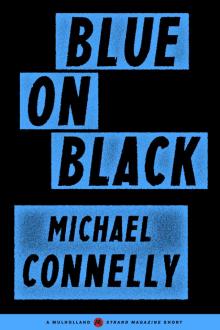 Blue on Black
Blue on Black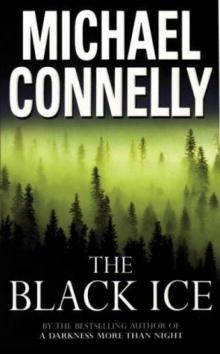 The Black Ice (1993)
The Black Ice (1993) Crime Beat: A Decade of Covering Cops and Killers
Crime Beat: A Decade of Covering Cops and Killers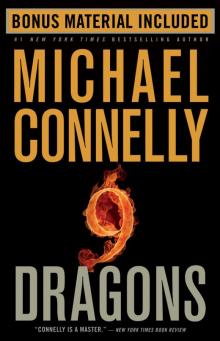 Nine Dragons
Nine Dragons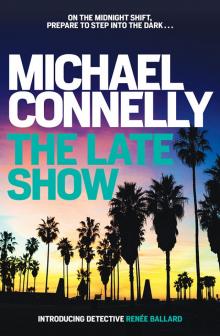 The Late Show
The Late Show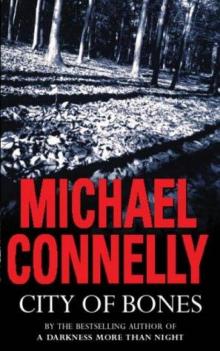 City of Bones
City of Bones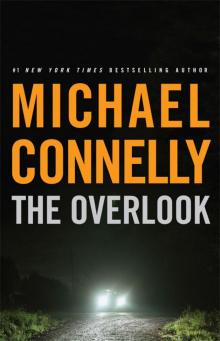 The Overlook
The Overlook The Crossing
The Crossing The Poet (1995)
The Poet (1995) Murder Worthy
Murder Worthy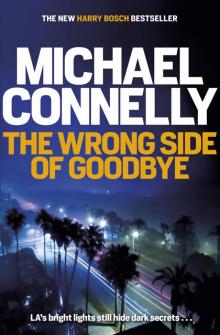 The Wrong Side of Goodbye
The Wrong Side of Goodbye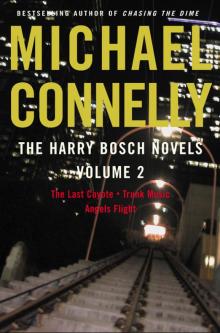 Harry Bosch Novels, The: Volume 2
Harry Bosch Novels, The: Volume 2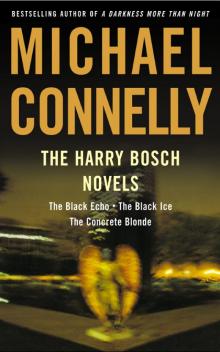 The Harry Bosch Novels
The Harry Bosch Novels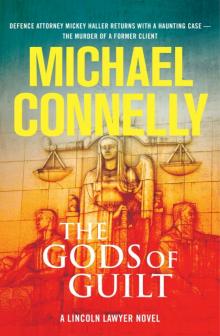 The Gods of Guilt
The Gods of Guilt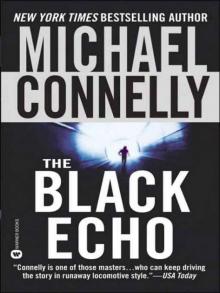 The Black Echo
The Black Echo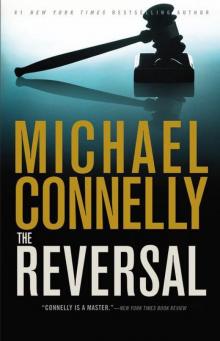 The Reversal
The Reversal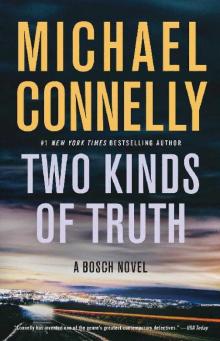 Two Kinds of Truth
Two Kinds of Truth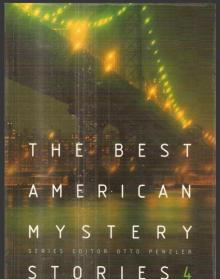 The Best American Mystery Stories 2003
The Best American Mystery Stories 2003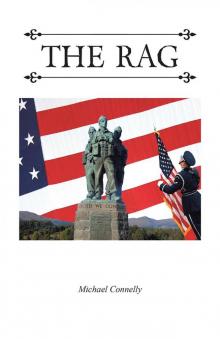 The Rag
The Rag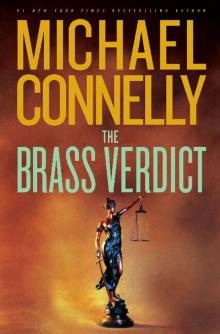 The Brass Verdict
The Brass Verdict The Black Echo (1992)
The Black Echo (1992)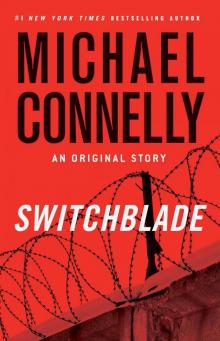 Switchblade
Switchblade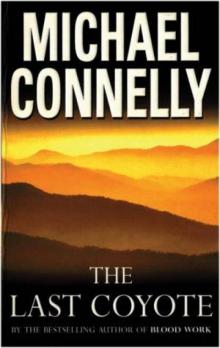 The Last Coyote
The Last Coyote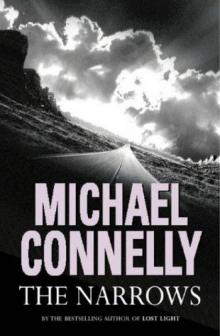 The Narrows
The Narrows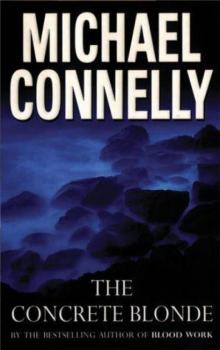 The Concrete Blonde (1994)
The Concrete Blonde (1994)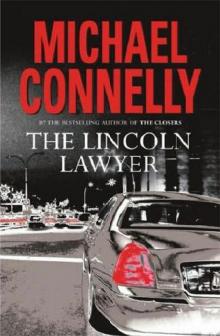 THE LINCOLN LAWYER (2005)
THE LINCOLN LAWYER (2005)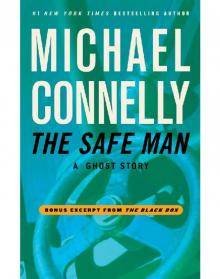 The Safe Man: A Ghost Story
The Safe Man: A Ghost Story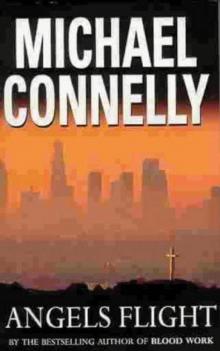 Angels Flight (1998)
Angels Flight (1998) Void Moon
Void Moon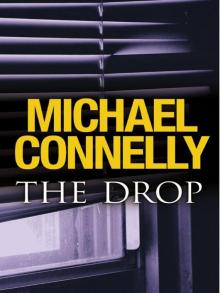 The Drop
The Drop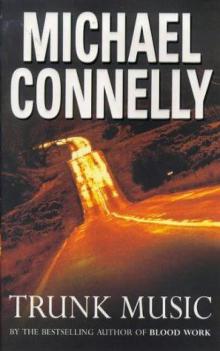 Trunk Music
Trunk Music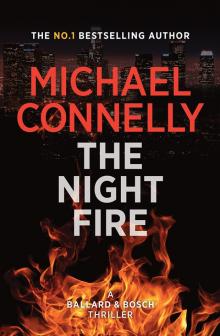 The Night Fire
The Night Fire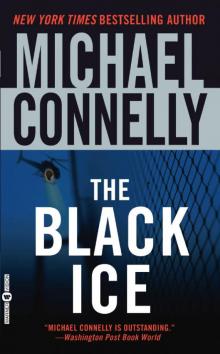 The Black Ice
The Black Ice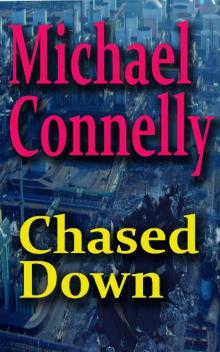 Chased Down
Chased Down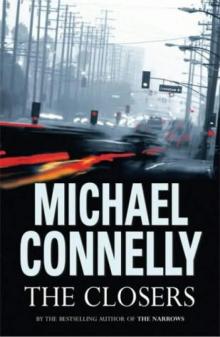 The Closers
The Closers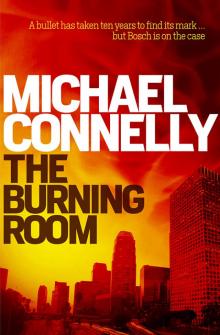 The Burning Room
The Burning Room Angels Flight
Angels Flight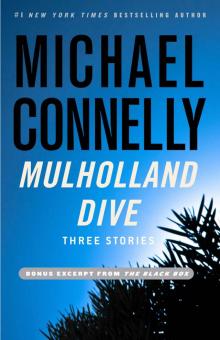 SSC (2012) Mulholland Drive
SSC (2012) Mulholland Drive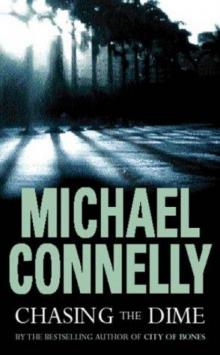 Chasing the Dime
Chasing the Dime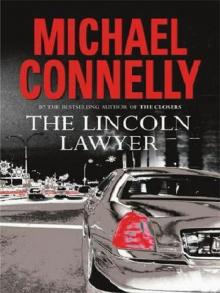 The Lincoln Lawyer
The Lincoln Lawyer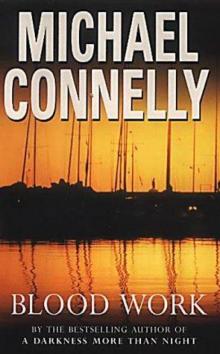 Blood Work (1998)
Blood Work (1998)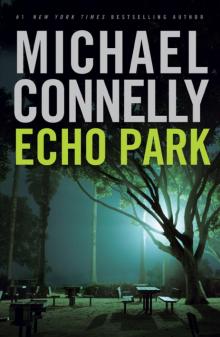 Echo Park
Echo Park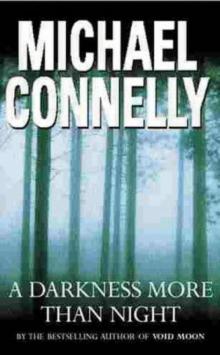 A Darkness More Than Night
A Darkness More Than Night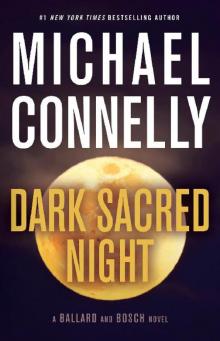 Dark Sacred Night - Ballard and Bosch #1;Renée Ballard #2
Dark Sacred Night - Ballard and Bosch #1;Renée Ballard #2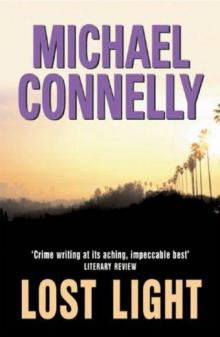 Lost Light
Lost Light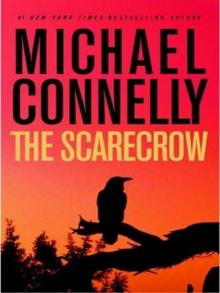 The Scarecrow
The Scarecrow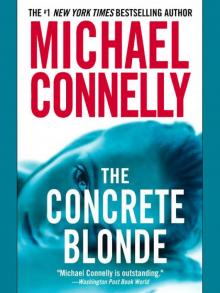 The Concrete Blonde
The Concrete Blonde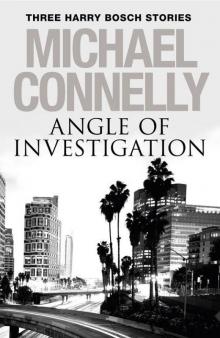 Angle of Investigation
Angle of Investigation Suicide Run: Three Harry Bosch Stories
Suicide Run: Three Harry Bosch Stories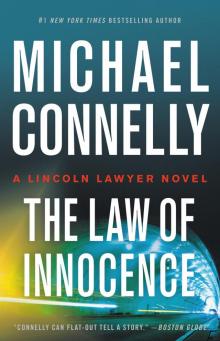 The Law of Innocence
The Law of Innocence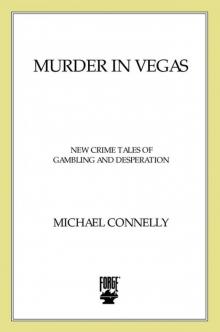 Murder in Vegas: New Crime Tales of Gambling and Desperation
Murder in Vegas: New Crime Tales of Gambling and Desperation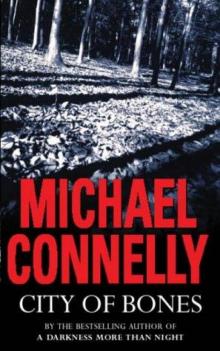 City Of Bones (2002)
City Of Bones (2002)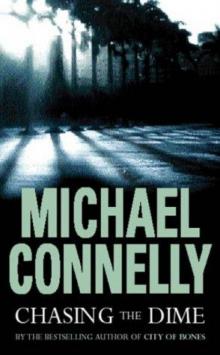 Chasing the Dime (2002)
Chasing the Dime (2002)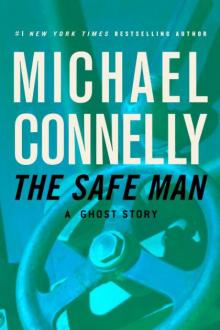 The Safe Man
The Safe Man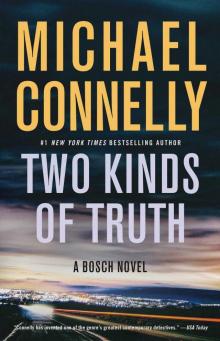 Two Kinds of Truth (A Harry Bosch Novel)
Two Kinds of Truth (A Harry Bosch Novel)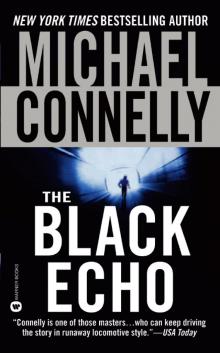 Harry Bosch 01 - The Black Echo
Harry Bosch 01 - The Black Echo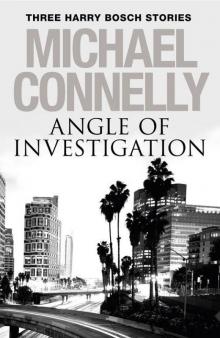 Angle of Investigation: Three Harry Bosch Short Stories
Angle of Investigation: Three Harry Bosch Short Stories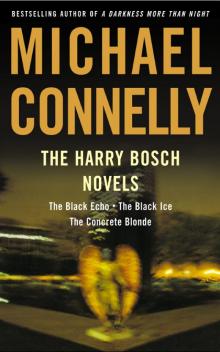 The Harry Bosch Novels Box Set 1
The Harry Bosch Novels Box Set 1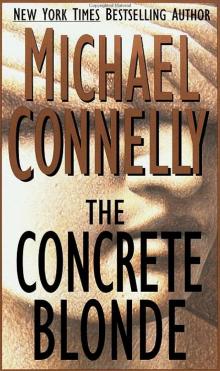 The Concrete Blonde hb-3
The Concrete Blonde hb-3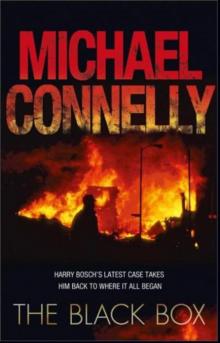 The Black Box hb-18
The Black Box hb-18 Short Stories
Short Stories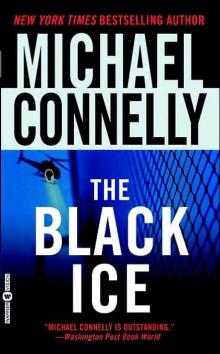 The Black Ice hb-2
The Black Ice hb-2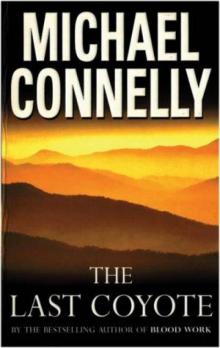 The Last Coyote (1995)
The Last Coyote (1995)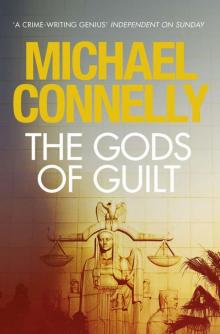 The Gods of Guilt mh-5
The Gods of Guilt mh-5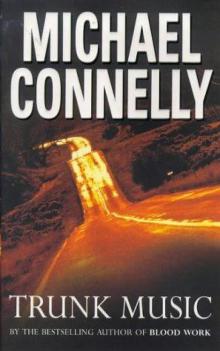 Trunk Music (1996)
Trunk Music (1996)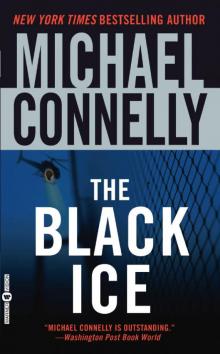 Harry Bosch 02 - The Black Ice
Harry Bosch 02 - The Black Ice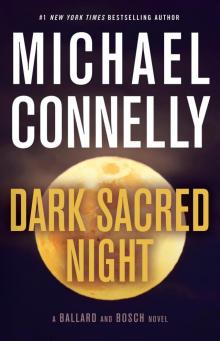 Dark Sacred Night
Dark Sacred Night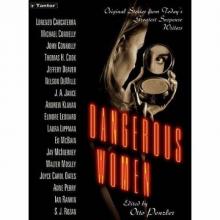 Cielo Azul
Cielo Azul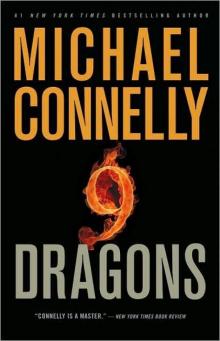 9 Dragons
9 Dragons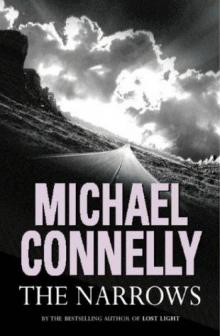 The Narrows (2004)
The Narrows (2004)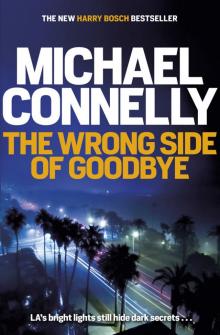 The Wrong Side of Goodbye (Harry Bosch Series)
The Wrong Side of Goodbye (Harry Bosch Series)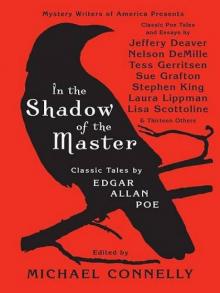 In The Shadow Of The Master: Classic Tales by Edgar Allan Poe
In The Shadow Of The Master: Classic Tales by Edgar Allan Poe Void Moon (1999)
Void Moon (1999)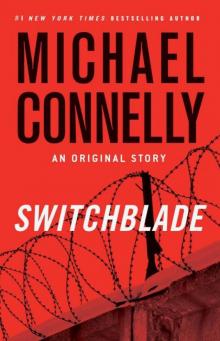 Switchblade: An Original Story (harry bosch)
Switchblade: An Original Story (harry bosch)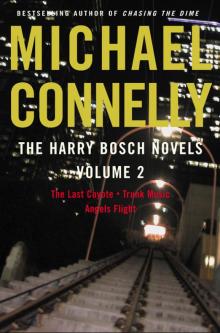 The Harry Bosch Novels, Volume 2
The Harry Bosch Novels, Volume 2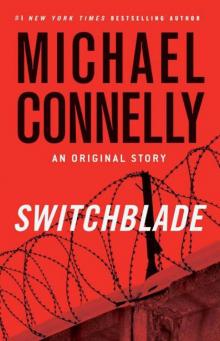 Switchblade: An Original Story
Switchblade: An Original Story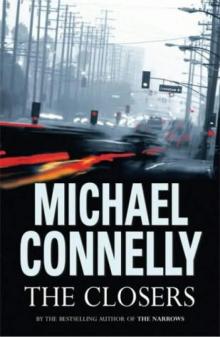 The Closers (2005)
The Closers (2005) Crime Beat
Crime Beat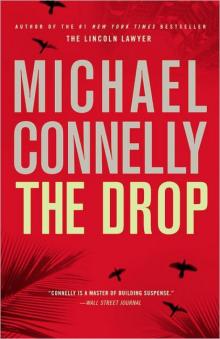 The Drop hb-17
The Drop hb-17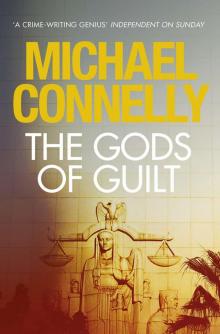 The Gods of Guilt (Mickey Haller 5)
The Gods of Guilt (Mickey Haller 5)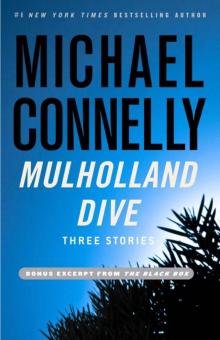 Mulholland Dive: Three Stories
Mulholland Dive: Three Stories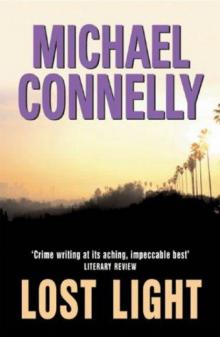 Lost Light (2003)
Lost Light (2003)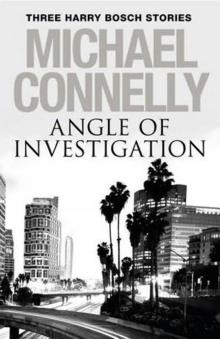 Angle of Investigation: Three Harry Bosch Stories
Angle of Investigation: Three Harry Bosch Stories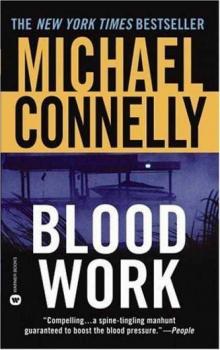 Blood Work
Blood Work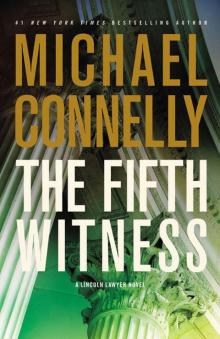 The Fifth Witness: A Novel
The Fifth Witness: A Novel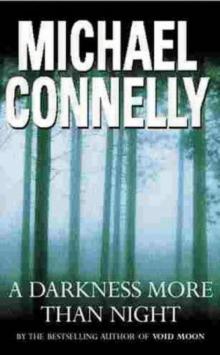 A Darkness More Than Night (2000)
A Darkness More Than Night (2000)